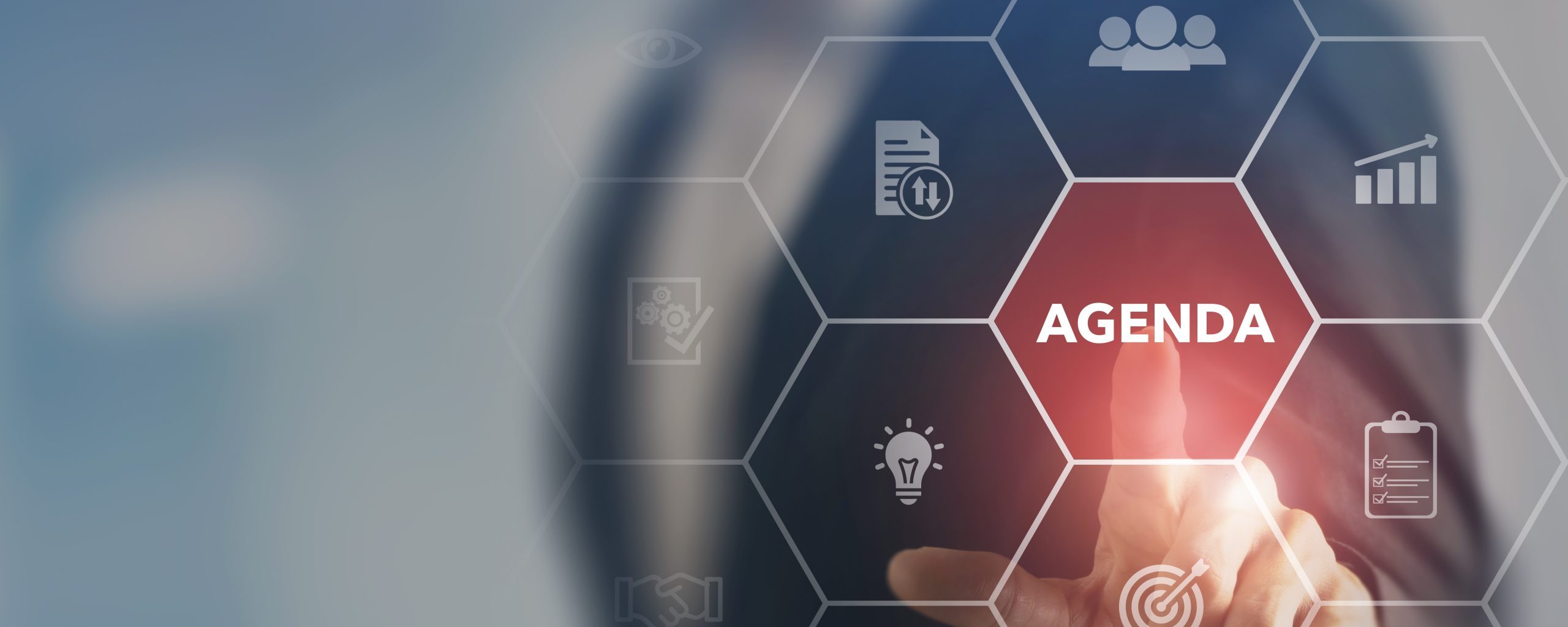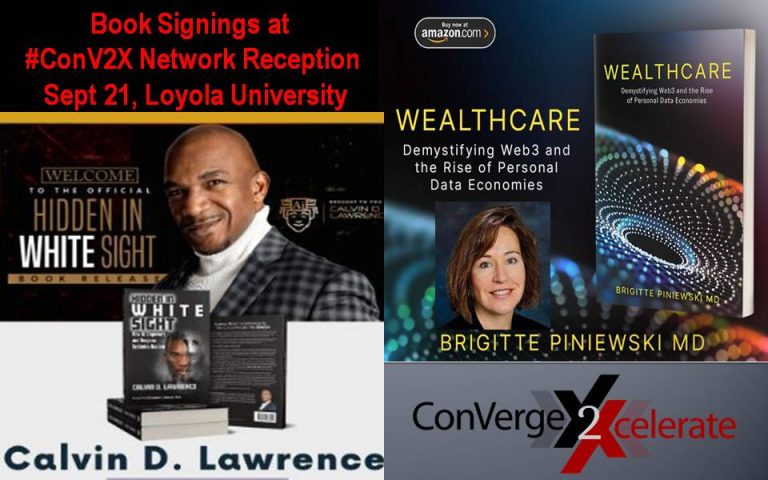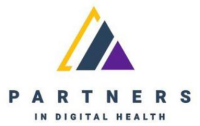
Get 10 Hours of Thought Provoking Discussions with Leading Global Experts and Pioneers!
Supercharge your career path, professional knowledge and ambitions, business strategy and competitive edge.
CME Sessions Provide Five (5) Hours Category One CME Credit
Global accreditation is available for Physicians, Nurses and Pharmacists in the United States, Canada, EU, UK, UAE and Saudi Arabia.
Full program access is granted for 1 year.
CME session titles are RED.
CME certificates are issued online after sessions are viewed in full.
On-Demand Only
PharmaLedger Association – Platform Launch Lessons Learned and Outlook (45 min.)
Natalia Sofia | Web3 Advocate
Daniel Fritz | Executive Director, PharmaLedger
Disa Lee Choun | Head of Integrated Clinical and Operational Analytics, Janssen Pharmaceuticals
Anca Petre | CEO, Medrise Studio
Moderator
This panel will explore the application of blockchain technology within the healthcare sector, focusing on its potential to enhance trust, transparency, and connectivity while reinforcing patient-centered control of data access. The discussion will examine the opportunities for patient empowerment and improved patient access to healthcare information through decentralized ledger technology. The panel will feature industry experts who will provide insights into current trends, challenges, and future prospects of blockchain in pharmaceuticals, emphasizing broader use cases beyond specific organizations.
Blockchain In Healthcare & Distributed Manufacturing In Medicine Fireside Chat (40 min.)
Nick Lambert | CEO, Dock Labs
Jim Nasr | CEO, Acoer
Moderator
The conversation pivots around what is actually working now in the blockchain in healthcare field including:
- Current trends in DIDs…what’s working, what’s not
- Usability and wallets
- Blockchain for medicine – is it helping decrease counterfeit medicine production?
- Decentralization, collaboration, and efficiency
- Advantages & disadvantages on decentralizing Pharma manufacturing
- Implications of collaborations, cross-border transactions for blockchain-enabled transactions and impact of immutability
- Interoperability, scalability, and economic viability for life sciences
- Regulation and the implications in life sciences
- Tokenization & Web 3 trends
- How to increase adoption and what the incentives are for Pharma
- Prediction(s)
Metaverse in Health: Risks and Opportunities (40 min.)
Lisa Gus | CEO, WishKnish, Metaverse Standards Forum
Dr. Jane Thomason | Chair, Metaverse Council and Founder, Supernova Data
The train has left the station, and all we can do is “lean in, because you can’t stop the pace of progress.” What’s the best course for healthcare professionals to navigate tech advances: proceed slowly,and keep curiosity high. Speakers will discuss aspects to consider in securing a trusted metaverse reality that includes issues such as mental health, gamification, patient populations, market access and cost, the dangers of creating a have and have not economy, behavioral health impact, and the need to standardize safety first in a data economy,
Automating Health Data Compliance Across Silos (20 min.)
David Stefanich | Founder and CEO, Rymedi
Dhiren Thakker | CEO, Med Aditus
Savva Kerdemelidis | CEO, Crowd Funded Cures
John Wu | President, Ava Labs/Avalanche
Phaedra Boinodiris | Global Leader for Trustworthy AI, IBM
Moderator
The data science of clinical care and clinical research is converging. But IT systems and solutions continue to be deployed separately for each – making care and research that spans the divide more difficult and costly than it need be. This discussion provides an overview of a blockchain-powered architecture for automating health data compliance across varieties of healthcare organizational and use case silos. Using real world experience bridging clinical care and clinical trials (real-world data and trial generated data), this presentation will highlight how blockchain technology is streamlining healthcare innovation today, and is laying the foundation for more inclusive and responsive Web3-powered health innovation in the years to come.
Metaverse Case Use in the Dental Industry Fireside Chat (30 min.)
Martin Ravets | Founder and CEO, Dentaverse
Anca Petre | CEO, Medrise Studio
Germinating in the EU, Dentaverse is now an international platform where professional growth is achieved connecting dental students, universities, professionals and suppliers in a virtual reality platform, where Web3, blockchain technology, and new payment models create a trusted platform for growth and learning.
Developing a Secure Internet-based Network of Trusted Data Fireside Chat (45 min.)
Thomas Hardjono, PhD | CTO, MIT Trust:Data Consortium
Florence Hudson, BSE | CEO FDHint, Executive Director, Northeast Big Data Innovation Hub and IEEE EMBS FDHint
Our world has not caught up with technology, and as a result has become more dangerous and nefarious with clandestine actors. Learn what reputable organizations, businesses and academic pioneers are doing to preserve digital identity, data provenance, universal access, and secure privacy-preserving transactions, to harness socially responsible global data sharing.
EHR Systems and Blockchain: Potentials, Challenges and the Road Ahead (60 min.)
Jim Poteet | Sr. Director, Revenue Cycle Development, Oracle
Mike Gault | CEO, Guardtime
Dr. Anjum Khurshid | Chief Data Scientist, Harvard Pilgrim Health Care Institute
Sivagnanam Suresh | Founder, Vdoc
Dr. Alex Norta | Founder, Norta Partners OÜ
Horst Treiblmaier, PhD | Head of the School of International Management, Modul University Vienna
Moderator
Panelists will discuss blockchain technology use for electronic health records, and specifically delve into the benefits that blockchain brings to EHRs, but also discuss what its pitfalls and limitations are; including presenting perspectives from academia, and examples
from practitioners, to ensure a lively discussion.
Learning Objectives
- Understand the potential applications of blockchain for electronic health records (EHRs).
- Explore the benefits and challenges of implementing blockchain for EHRs, including security, interoperability, privacy, and data integrity.
- Identify key use cases and real-world examples of blockchain implementation in healthcare and EHR management.
- Analyze the potential impact of blockchain on improving healthcare data exchange, patient consent management, and medical research.
- Discuss the regulatory and legal considerations associated with using blockchain in healthcare, such as compliance with data protection laws and standards.
- Examine the role of smart contracts and decentralized applications (DApps) in enhancing EHR management and patient control over their health information.
- Assess the scalability and performance limitations of blockchain technology in handling large-scale healthcare data and high transaction volumes.
- Evaluate potential cost savings and efficiency gains achieved through blockchain implementation in EHRs, considering factors such as data access, auditability, and administrative overhead.
- Discuss the future prospects and challenges of integrating blockchain with existing healthcare systems, standards, and infrastructure to achieve widespread adoption and interoperability.
Crypto-Secure Data Management for Healthcare (30 min.)
Wei Hu | Senior Vice President of Development, Oracle
Blockchain is a new technology that has attracted a tremendous amount of interest. However, up to now, blockchain has mainly been used to develop decentralized multi-party applications. This talk will describe Oracle’s breakthrough technology that deeply integrates blockchain into the Oracle database. Since virtually all critical data are stored in databases, this makes it possible to implement blockchain in mainstream healthcare and enterprise applications with minimal changes. We will begin by introducing the threats posed by hackers and compromised insiders. Then we will describe how in-database blockchain can protect your data against these threats. We will compare this against conventional blockchains as well as share use cases from customers who have adopted this technology.
Learning Objectives
- Understand the concepts behind crypto-security and the threats it addresses
- Explore the challenges with adoption of blockchain
- Learn how database-integrated blockchain can be used to protect critical data against tampering
- What are the advantages and disadvantages of a database-integrated blockchain?
- Get an understanding of the types of healthcare data that can be protected using blockchain
Decentralized Health and Ubuntu: What Africa Gets that Others Don’t (30 min.)
Michael Expechue | Director, AfyaRekod
Ron Harris, MD | Co Founder and Director, AfyaRekod USA
Alex Cahana | Principal, Impact Rooms
Moderator
Speakers will provide perspectives "from bedside to blockchain." Viewers will embark on a global health journey from rural clinics with little to no available patient health data, to an era where patients have sovereign control of their health data sourced from multiple platforms, and secured with blockchain. Expect answers to question such as what are the implications for patient safety, treatment outcomes, and global health?
Data Economy in Healthcare on Blockchain Technology (20 min.)
Kevin Yavuz | Managing Consultant Blockchain, Data & Technology Transformation, IBM
The importance of data and digitization in healthcare cannot be overstated. These advancements have the potential to revolutionize the way healthcare is delivered, leading to improved patient outcomes, enhanced efficiency, and better decision-making by healthcare providers. Blockchain technology can play a significant role in addressing the main challenges like data accessibility, privacy, interoperability and patient empowerment, ultimately transforming the healthcare ecosystem into a data-driven economy
Holographic Teleportation Demo Video
Dr. Fernando De La Peña Llaca | CEO & President, Aexa
The future has arrived in telementoring, training and more! View a real world stroke physical evaluation and physical therapy demonstrated by NASA innovation Award recipient Aexa, where holographic two way teleportation is well underway between physicians and patients. You don't have to spend thousands of dollars on hardware - this application is agnostic, and designed to use on a smartphone, laptop, and across devices already on the market! And yes - blockchain technology is utilized. These are components of our future in healthcare. Are you ready to move the field of medicine into the next frontier?
Healthcare & Cryptocurrency: Can They Work Together? (35 min.)
Pradeep Goel | CEO, Solve.Care
How do Web3, Blockchain, and the Future of Healthcare Administration all work together? The speaker provides solutions to current healthcare issues. The presentation details the benefits of cryptocurrencies and blockchain highlighting the benefits of improving payment processes, identity verification, consent management, and record sharing. The speaker introduces the concept of care cards, which can automate and simplify healthcare processes, improving patient engagement - emphasizing the importance of improving healthcare and the potential of digital assets like care cards to achieve this goal.
Accelerating the Worldwide Adoption of Blockchain Technology (30 min.)
Raja Sharif | CEO, FarmaTrust
Case Use: A potential game changer entered the arena in 2022 with a new approach to cell and gene therapy tracking, allowing more streamlined applications, payment options and opportunity to realize true manufacturing safety and trust at scale quicker for personalized medicines and regimen treatments.
Impact of Blockchain-Digital Twin Technology on Precision Health, Pharma and Life Sciences (40 min.)
Tyler Cohen Wood | Co-Founder, Dark Cryptonite
Dr. Christina Yan Zhang | CEO, The Metaverse Institute
Dr. Michael Mylrea
Brian Thornley | SVP - Supply Chain, Merck
Dr. Ingrid Vasiliu-Feltes | Founder & CEO, Institute SEI
Moderator
The integration of digital twin technologies in precision health, pharma, and life sciences has gained significant attention in recent years. Digital twin technologies are expected to play a critical role in improving healthcare outcomes as we move towards the era of personalized medicine. In this panel discussion, we will explore the key drivers for the adoption of digital twin technologies, including the transition to Web 3.0, the establishment of a global interconnected health ecosystem, and the unique benefits of blockchain, artificial intelligence (AI), and other converging frontier technologies to optimize healthcare, pharma, and life sciences.
However, the successful implementation of blockchain-powered digital twin technologies in precision health is contingent upon the adequate implementation of cyber safety measures, proactive ethics programs, data validation, data provenance, optimized supply chain management, and enhanced interoperability. Our panel discussion will highlight the significant role of blockchain-powered digital twins in revolutionizing the management, security, sharing, ownership, and monetization of health data. Our panelists will also emphasize the potential for blockchain-powered digital twins to be deployed in pharma supply chain management and new drug development in the precision health era. Our speakers will demonstrate the amplified impact on patient outcomes when blockchain capabilities are augmented with a full AI portfolio of tools during digital twin deployments in healthcare, pharma, and life sciences.
Learning Objectives
1. Understand the concept of digital twin technologies and their potential applications in precision health, pharma, and life sciences.
2. Identify the key drivers and benefits of adopting blockchain-powered digital twin technologies in the healthcare ecosystem.
3. Explore the integration of artificial intelligence (AI) with blockchain-powered digital twins and its impact on optimizing healthcare outcomes.
Pioneering New Business Models in Value Based Care (20 min.)
Ahmed Abdulla | CEO, Digipharm
This session will explore the real-world impact value-based procurement and subsequent contracting, and health technology pricing in the context of value-based care. We will delve into innovative business models that are reshaping the healthcare landscape, promoting cost-effectiveness, and enhancing patient outcomes. Attendees will gain valuable insights into the evolving strategies driving value-based care and its implications for healthcare providers, payers, and patients.
Learning Objectives
- Understand the concept of value-based care and its significance in the current healthcare environment.
- Explore the real-world impact of value-based pricing on healthcare delivery and patient outcomes.
- Examine the role of value-based procurement/contracting in driving cost-effective healthcare solutions.
- Gain insights into health technology pricing models and their impact on value-based care initiatives.
Identify innovative business models that support value-based care and improve patient outcomes.
Zero Trust and Identity: Bridging the Gap in Healthcare with Decentralization (40 min.)
Rob van Kranenburg | CIO, Asvin
Jim St. Clair | COO & Advisor, Multiple Companies
Shaila Rana, Founder, CyberSecure
Moderator
The National Cybersecurity Strategy of 2023 emphasizes the importance of implementing zero trust architectures (ZTA). ZTA is listed as a key component in the approach to cybersecurity. The National Cybersecurity strategy emphasizes the need for agencies and organizations to adopt a ZTA to include MFA, encryption, continuous monitoring, and more. These measures are listed as being essential to protect networks, devices, data, and information systems from the plethora of cyber threats we face. Critical infrastructure has been frequently attacked and targeted by nefarious actors, especially the healthcare industry. Due to the nature of information that is hosted and interacted with in the healthcare industry, the implementation of a ZTA is all the more crucial. In the context of health care, zero trust is becoming increasingly essential because of the vast amounts of patient health information that can be highly valuable
to cyber criminals. Moreover, the rise of telemedicine, remote work, and online communications with doctors and healthcare staff leave information systems vulnerable. Thus, implementing a zero trust approach in healthcare can reduce the risk and impact of security incidents. A ZTA can improve the security posture of healthcare organizations to protect the confidentiality, integrity, and availability of patient data. However, the implementation of a ZTA
within health care can face some hurdles. Consequently, this panel will address these challenges and remediations.
Learning Objectives
- Identify challenges and remediations associated with implementing ZTA in healthcare
- Analyze the vulnerabilities in healthcare information systems caused by the rise of telemedicine, remote work, and online communications
- Evaluate how implementation of a zero trust approach can reduce the risk and impact of security incidents in healthcare
S3EF-HBCAs: Secure and Sustainable Software Engineering Framework for Healthcare Blockchain Applications(20 min.)
Muthu Ramachandran, PhD | Department of Computer Science and Engineering (CSE) Indian Institute of Technology (ISM), India
Blockchain applications in healthcare have grown rapidly. BC in healthcare applications includes record keeping, clinical trials, medical supply chains, patient monitoring, etc where BC characteristics are needed to improve safety, privacy, and security. BC is one of the biggest disruptive technologies today. However, Porru, et al (2017) have reported it lacks processes, tools, and techniques.
Destefanis et. Al. (2018) has reported that there is a need for smart contract programming based on a disciplined approach and have reported several incidents of vulnerabilities causing freezing of more than 500K users with the loss of $150 millions of dollars. In addition, existing studies on software engineering for blockchain Dapps sought for a systematic approach (Beller and Hejderup, 2018; Destefanis et. Al. 2018; Chung L, do Prado Leite JCS 2009).
Therefore, this talk provides a systematic framework for a secure and sustainable software engineering framework for healthcare blockchain applications. S3EF-HBCA includes requirements engineering for healthcare, business process modelling for healthcare, a reference architecture for healthcare, and validation by case study and simulation with BPMN. The results show encouragement in terms of process, tools, standards, and testing.
Learning Objectives
- To understand the current trends in healthcare blockchain applications (HBCAs)
- To identify some of the key characteristics of Blockchain relevant to HBCAs
- To understand the security, sustainability, and software engineering approach in HBCAs Framework (S3EF-HBCAs)
- To understand Requirements Engineering for S3EF-HBCAs
- To acquire knowledge on Domain Classification for Blockchain Applications
- To understand Blocks-Points Effort & Complexity Estimation
- To understand Reference Architecture for Blockchain in S3EF-HBCAs
- To understand BPMN modelling & simulation using a Case Study and Evaluation of REF-ArcBC with BPMN: Electronic Health Record (EHR)
- To understand the Evaluation Techniques of BPMN simulation for Reference Architecture for S3EF-HBCAs.
ConV2X Ignition Pitch Competition
Winners
- Bloqcube Inc for Blockchain in Healthcare
- Veta Health for AI & Teec in Telehealth
All Contestants
- Bronwyn Bridges, Founder, PragmaClin Research Inc
- Daniel Uribe, CEO, Genobank.io
- Paniz Jasbi, Founder, Theriome Inc
- Rama Rao, CEO, BloqCube
- Ryan Wright, Founder, Nvelope LLC
- Seth Dobrin, PhD, Founder & CEO, Qantm AI
- Tanvi Vattikuti Abbhi, Co-Founder, Veta Health
Judges
- William Taranto, President,
- Merck Global Health Innovation Fund
- Nisa Amolis, Managing Partner, A100x Ventures
- Dr. Shayan Vyas, Executive Physician/Medical Leader
Health Systems - Dr. Sweta Sneha, Executive Director of Healthcare Management Informatics. Professor of Information Systems, Coles College of Business, Kennesaw University
- Ruby Gadelrab Tudor, CEO, MDsrupt
- Dr. Fernando De La Peña Llaca, CEO & President, Aexa
- Shwen Gwee, Former VP and Head of Global Digital Strategy, Bristol Myers Squibb – MODERATOR
Thursday, September 21 | Live & In-Person
8am – 9am Breakfast
9:00am | The Power of Connection with Trustworthy Data Ecosystems
Frank Ricotta | CEO, BurstIQ
Philip Komarny, CEO, My LifeTrek Network, and CIO, Maryville University

Platinum Sponsor
Join real world engagement partners from Mercy Health and Maryville University to introduce BurstIQ’s LifeGraph: A trustworthy Web3 data fabric powered by blockchain. The platform: applies AI to automate data integration enhances privacy and security delivers deeper insights through graph technology makes data AI ready helps make more meaningful customer connections Panelists will demonstrate real world examples of the platform in action including: How LifeGraph Intelligence groups patient data in cohorts, and helps hospitals identify cost variation and engage providers in cost-saving initiatives Discuss how Mastercard applies their incentive/reward methodology to the healthcare space, without Mastercard ever seeing any healthcare data Demonstrate how a workforce engagement tool helps with credential verification, employee ownership of data, AI-powered learning pathways to support career development, and communities to improve culture and morale
9:40am | Building Stronger Communities through Decentralized Science: Exploring New Opportunities for Incentivization
Dr. Jelani Clarke | Executive, DeSci World
Laura Minquini | Founder & Core Lead, AthenaDAO
Wojciech Sierocki | Co-Founder & CEO, DataLake
Ray Dogum | Founder & Podcaster, Health Unchained and Vibe Bio Manager
Moderator
Decentralized science (DeSci) has the potential to revolutionize the way we approach scientific research and development. However, to fully realize the benefits of decentralized science, it is crucial to create strong and engaged communities. In this panel, we will discuss how community development can drive innovation and progress in decentralized science. You’ll hear how DeSci is improving research funding for women’s reproductive health. We will explore strategies for incentivizing donation-based data repositories and resources to scientific projects. Our panelists, experts in community development and decentralized science, will share their insights and experiences on these important topics. Attendees will leave with a deeper understanding of the DeSci landscape.
10:30am | Leveraging Technology for Public Good in Healthcare
Francisco Curbera | Lead, AI Platform Innovation, AI Center of Excellence, Swift
Toufi Saliba | CEO and Global Chair, International Protocols for AI Security, IEEE Toda.Network
Dr. Anjum Khurshid | Chief Data Scientist, Harvard Pilgrim Health Care Institute
Gianluca De Novi, PhD | Co-Founder, Circular Labs and Dir. of Medical Device & Simulation Lab, Mass General Hospital
In depth review of multiple current and future technologies and potential applications with blockchain to future proof healthcare systems, products, and services.
11:10am
— Break —
11:30am | Moving Beyond POCs and Pilots to Mainstream – Method, Discovery, Results, and Opportunities from Blockchain in Healthcare
Sathya Krishnasamy | Former Senior Director Blockchain Technology, Elevance
Blockchain technology has been pushing innovation boundaries, particularly in the permissionless space. However, enterprise adoption is not yet profound. This keynote lays out the root causes including technical, functional, operational, and change management aspects, and a methodology to systemically make this innovation meet the mainstream at scale, in a stair-stepped and future-proofed way to increase the chances of mainstream adoption. Healthcare administrative executives and portfolio managers can benefit from these insights and help increase the enterprise adoption of this inevitable technology of the future.
12pm | Building Market Integrity with Standards and Guardrails
Nisa Amoils, Esq. | Managing Partner, A100x Ventures
Jim St. Clair | COO & Advisor, Multiple Companies
Robert Rachford | Global HealthTech Policy Fellow Global DCA
Moderator
Unclear and non-existent regulatory standards and guardrails have made building and developing blockchain-based solutions for today’s healthcare and life sciences challenges difficult at best. Join our panelists of blockchain implementation experts as we discuss what future standards may look like, and how the establishment of those standards and guardrails will unlock the future of blockchain adoption in healthcare and life sciences.
12:30 PM Lunch
1pm | How Traditional Finance Enables Transformation in Healthcare Payment Solutions
John Hatchell | CEO, Tydei Health
Micah Kerr | Head Architect, Commercial Payments and Emerging Technologies, Discover

1:40pm | Ecosystem Implementations with Blockchain Technology: Leadership Decisions and Roll Outs
John Niemi | CEO, Armas Pharmaceuticals
Matt Perron | Director, Chronicled
Thomas Matanich, MBA, PMP | Director, Pharmacy Contract Mgmt, Baptist Health System Services
Corey Greco | SVP, Armas Pharmaceuticals
Moderator

Case Use: Challenges and smart business solutions for global manufacturers that benefit systems enhancements, lower costs, shorten time to market, and provide more safety levers for patients.
2:20pm | Democratizing and Decentralizing Healthcare Access
Michael Dershem, MAPay
John Connor | CEO, Sparkblox
John Hatchell | CEO, Tydei Health
Moderator
- The ability to use the data on-demand in a permissionable way across the globe
- Cross-border applications as it relates to telehealth and triaging
- Digital identity, security, and data privacy
- Agility of infrastructure (physical resources, regulatory, finance, digital data, geography)
2:50pm
— Break —
3:10pm | Holographic Teleportation Demo
Dr. Fernando De La Peña Llaca CEO & President, Aexa
NASA Innovation Award Recipient, and collaborator, Aexa, takes us into a new frontier of remote care with low to no cost agnostic software for everyone to access across the globe. What are the design basics and how does blockchain technology enable safe and private interoperable execution. From telementoring, to remote physician assistance, to completing a virtual physical examination, you will see, touch, utilize and experience, first hand, what sophisticated technology that is designed for simplicity and ubiquitous use, can do to help patients and doctors from a distance, enhancing care and outcomes everywhere!
3:30pm | Decentralized Clinical Trial Management Systems (dCTMS) Workshop (1-Hour Interactive Learning Exercise)
Alex Cahana | Partner, Impact Rooms
Rama Rao | CEO, BloqCube
From a patient point of view drug discovery takes too long, whereas researchers express there is too much bureaucracy in the process. For actors in policy and regulation, the perception is that accelerated R&D has not translated into better patient outcomes. The future of pharma and digital therapies is fraught with increased costs and uncertain profitability – even insurance companies have experienced reduced ability to place new drugs on formulary. We pay more for drugs and die younger- so how should we practically redesign CTMS?
The answer to this and other related questions will be spotlighted with a pointed presentation of the challenges of bringing dCTMS to real life along with a tailored workshop where instructors will cover:
- What does dCTMS look like?
- Patients, providers/researchers, payers, industry/pharma/CRO, government will be divided into groups to create Real dCTMS in Action
- Groups will present their solution in a Workshop Debrief
4:30pm | Bridging DeSci and Legacy Health Innovation
Jason Cross | Chief Strategy Officer, Rymedi
Savva Kerdemelidis | CEO, Crowd Funded Cures
Laura Minquini | Founder & Core Lead, AthenaDAO
Decentralized Science (DeSci) efforts are harnessing the power of Web3 technologies to improve, accelerate and democratize scientific research via DAOs, IP-NFTs, crypto financing, tokenized research, self-sovereign data contributions and other tools. Many of these efforts focus on health. However, the emerging DeSci ecosystem remains generally separate from the legacy health innovation systems that patients and health system worldwide continue to rely on to improve care and outcomes. This panel focuses on strategies to bridge DeSci and legacy health innovation in order to scale the transformative potential of DeSci for health.
Meeting Adjournment
Book Signings, 6-8 PM


Blockchain in Healthcare Today (BHTY) is the world’s first peer reviewed open access journal that amplifies and disseminates distributed ledger technology research and innovations in the healthcare information systems, clinical computing, network technologies and biomedical sciences. Fields of interest include utility for data integrity, privacy preservation, health information systems interoperability, permissioned security for health data, clinical support and clinical trials management, supply chain management, revenue cycle automation, cost and impact, and the integration of AI and machine learning tools in this emerging specialty field of research.
The preeminent international journal is published on a continuous basis to accelerate sharing rigorously vetted theoretical and experiential knowledge required for a global multi-disciplinary ecosystem.

Copyright © 2026. All rights reserved. Designed for ConV2X.